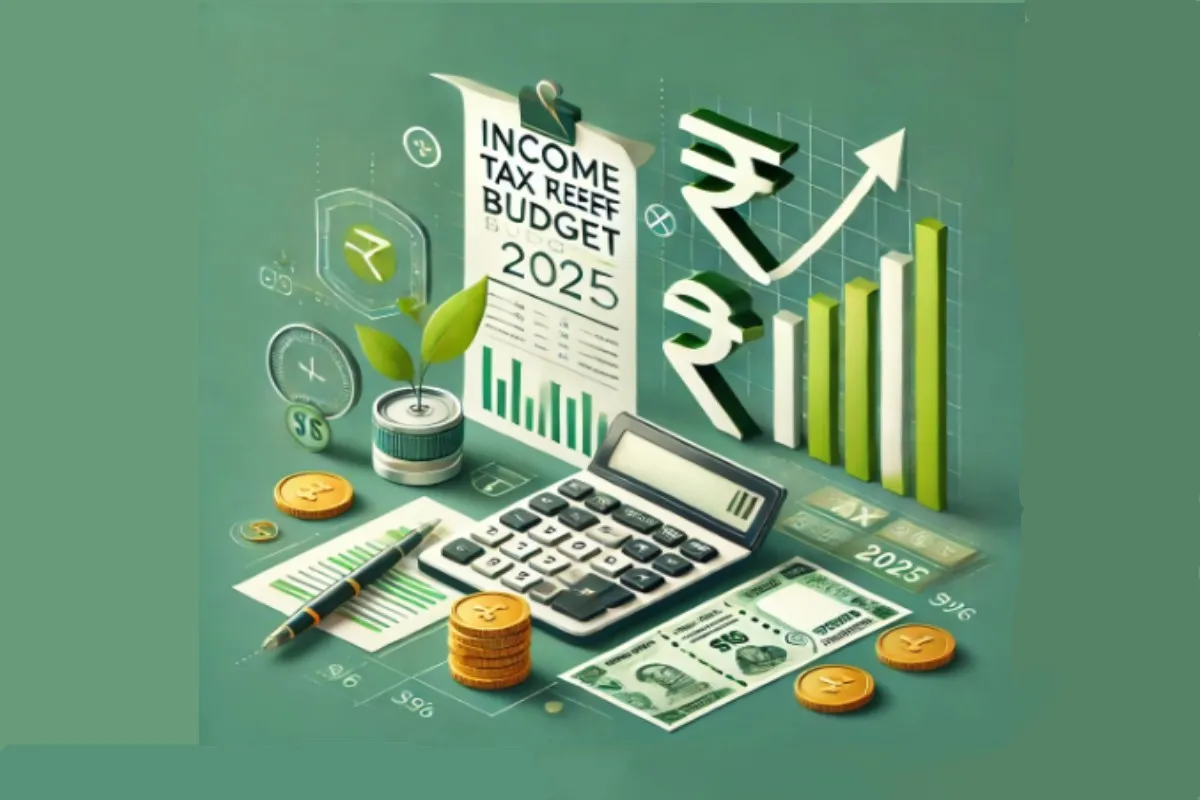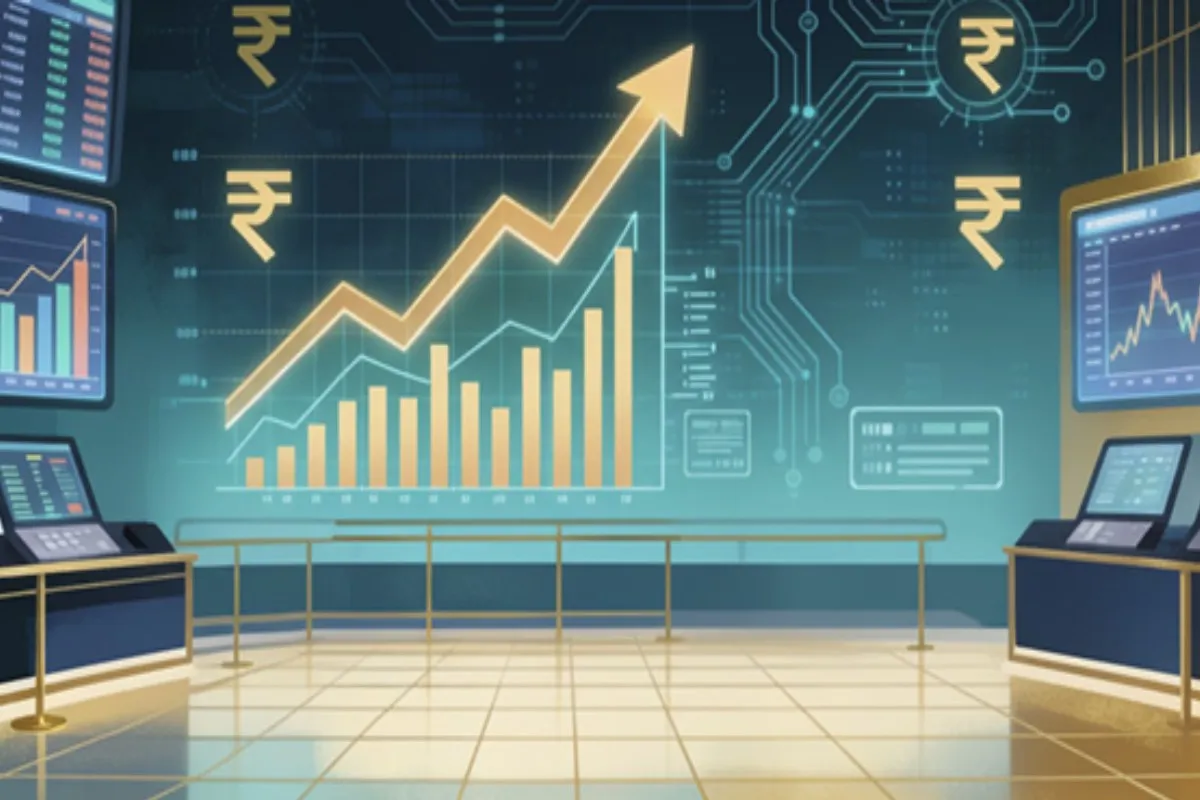
Income Tax Relief Budget 2025
Share With Friends
The Union Budget 2025-26 has introduced significant changes in India’s income tax framework, bringing much-needed relief to middle-class taxpayers. With a focus on boosting disposable income, simplifying compliance, and promoting voluntary tax adherence, the Income Tax Budget 2025 aligns with the government’s broader vision of economic growth and financial inclusivity. The Finance Minister, Nirmala Sitharaman, in her Budget Speech 2025, emphasized tax reforms as a key pillar of the government’s strategy to empower individuals and stimulate economic activity.
Table of Contents
This article provides an in-depth look at the major announcements related to income tax relief in Budget 2025, including revised tax slabs, increased rebates, TDS and TCS modifications, and compliance-easing measures.
Revised Budget 2025 Tax Slabs Under the New Regime
One of the most anticipated changes in Budget 2025 is the revision of income tax slabs under the new tax regime. The revised structure offers broader exemptions and lower tax rates, particularly benefiting middle-class taxpayers.
Data Center Related Articles
- Anant Raj Limited: The Best Way to Invest in Data Center Stocks in India
- Data Center in India – Best Data Center Stocks in India to Invest
- NSE listed data center companies in India
- Explore Best Data Center Companies in India
- Opportunities in the Indian Data Center Market
- Fast Growing data center player Nxtra Data Limited Achieved Unicorn status: Learn actionable insights
- Best 5 Top Electronics Companies in India
Budget 2025 Tax Slabs
| Income Slab (Annual) | Previous Tax Rate | New Tax Rate |
| Up to ₹4 lakh | Nil | Nil |
| ₹4 lakh – ₹8 lakh | 5% | 5% |
| ₹8 lakh – ₹12 lakh | 10% | 10% |
| ₹12 lakh – ₹16 lakh | 15% | 15% |
| ₹16 lakh – ₹20 lakh | 20% | 20% |
| ₹20 lakh – ₹24 lakh | – | 25% |
| Above ₹24 lakh | 30% | 30% |
Key Takeaways from the New Tax Regime:
- Higher rebate threshold: The full tax rebate (100%) is now available for incomes up to ₹12 lakh, a major increase from the earlier limit of ₹7 lakh.
- Tax slab adjustments: The lowest tax bracket now applies to incomes up to ₹8 lakh instead of ₹7 lakh, providing additional relief to low-income groups.
- Simplicity and transparency: The old tax regime remains unchanged, but taxpayers now have a clearer choice between the old and new tax structures.
The government estimates that these changes will benefit nearly 3 crore taxpayers and increase taxpayer savings by ₹1 lakh crore annually.
Increased Tax Budget 2025 Rebate for Middle-Class Taxpayers
A major highlight of the Income Tax Budget 2025 is the substantial increase in the rebate limit under Section 87A, which will help taxpayers retain more of their earnings.
Key Rebate Provisions:
- Taxpayers with annual incomes up to ₹12 lakh will get a 100% tax rebate, meaning they will not have to pay any income tax.
- This is a huge jump from the previous ₹7 lakh threshold, allowing a wider section of taxpayers to benefit from zero-tax liability.
- This move is aimed at enhancing household savings and boosting consumption, which in turn will drive economic growth.
With this tax relief measure, individuals earning ₹10-12 lakh per year will have more disposable income, encouraging spending and investment in the economy.
TDS & TCS Modifications for Simplified Compliance
The government has also announced key modifications in Tax Deducted at Source (TDS) and Tax Collected at Source (TCS) to ease compliance burdens on taxpayers.
TDS Changes:
- TDS on rental income: The annual exemption limit for TDS on rent has been raised from ₹2.40 lakh to ₹6 lakh, reducing unnecessary tax deductions for individuals renting properties.
- TDS on senior citizens’ interest income: The exemption limit has doubled from ₹50,000 to ₹1 lakh, ensuring higher post-tax earnings for senior citizens.
TCS Changes:
- Remittances for education: TCS will no longer be levied on international education remittances made through loans from specified financial institutions.
- Threshold increase for LRS (Liberalized Remittance Scheme): The TCS limit on foreign remittances has been raised from ₹7 lakh to ₹10 lakh, making overseas transactions smoother.
These changes are expected to reduce unnecessary tax deductions, improving cash flow for individuals and businesses alike.
Extension of Tax Exemptions for Startups & IFSC Units
The Income Tax Relief Budget 2025 has extended key tax exemptions to boost entrepreneurship and financial services.
For Startups:
- Startups incorporated until April 1, 2030, can now avail income tax exemptions for three consecutive years within the first ten years of operations.
- This extension is expected to benefit over 20,000 startups, further fueling India’s innovation ecosystem.
For International Financial Services Centres (IFSC):
- Tax exemptions on financial transactions in IFSCs have been extended until March 31, 2030.
- Exemptions also apply to ship-leasing activities within IFSCs, promoting global trade and investment in the financial hub.
Enhancing the Taxpayer Compliance Mechanism
The Income Tax Budget 2025 introduces measures to simplify tax compliance and encourage voluntary disclosures.
Key Compliance Measures union budget 2025
- Extended Timeframe for Updated Tax Returns:
- Taxpayers now have four years (instead of two) to file updated tax returns if they miss reporting any income.
- Penalty rates for late filings have been revised to 60% (third year) and 70% (fourth year) of the due tax.
- Voluntary Compliance Incentives:
- A new provision allows taxpayers to voluntarily disclose unreported income and pay taxes with interest but without penalty, making compliance more taxpayer-friendly.
- Simplified Filing for NGOs & Trusts:
- The validity of tax exemption certificates under Section 12A has been extended from five to ten years.
- Minor defaults will not lead to disproportionate penalties, improving the ease of compliance for charitable organizations.
These measures reflect the government’s commitment to making taxation more transparent, less punitive, and highly taxpayer-friendly.
Impact of Income Tax Relief Budget 2025
The income tax relief measures in Budget 2025 will have wide-ranging benefits across different economic segments.
1. Middle-Class Households:
- Higher rebate limits and revised tax slabs will increase disposable income for millions of families.
- More money in hand will boost spending on housing, education, and consumer goods, fueling economic growth.
2. Entrepreneurs & Startups:
- Tax exemptions for startups until 2030 will encourage new business ventures and create more jobs.
- IFSC tax benefits will attract global financial players, strengthening India’s position as a financial hub.
3. Senior Citizens:
- Doubling interest income exemption will enhance financial security for retirees.
- Simplified TDS provisions will reduce tax burdens on pensioners and savings account holders.
4. Ease of Compliance for Taxpayers:
- Extended deadlines for filing returns and voluntary disclosure incentives will make compliance less stressful.
- Reduced TDS/TCS thresholds will minimize tax deductions and improve cash flow.
Overall, Budget 2025-26 delivers one of the most impactful income tax relief packages in recent years, ensuring financial empowerment for individuals while maintaining economic stability.
Outlook on Income Tax Budget 2025
The Income Tax Relief Budget 2025 reflects the government’s commitment to taxpayer welfare, economic inclusivity, and financial ease. By increasing tax-free income limits, reducing compliance burdens, and encouraging voluntary tax adherence, the budget paves the way for a simpler and more equitable taxation system.
With these reforms, Government of India is aiming to see a higher tax compliance, greater disposable incomes, and a more vibrant economy in the coming years. However, the income tax rebate is not allowed for income taxable at special rates. For example, capital gain u/s 112A.
A new bill on Direct tax reform will be presented at the parliament next week.



